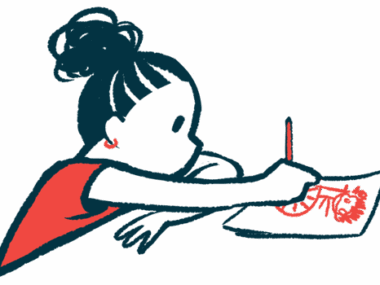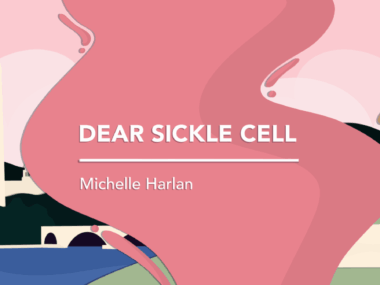Imagining a world without cultural stigma about sickle cell disease
This columnist envisions a world where no one has to live a secret life
Written by |

Experiencing different cultures has made me appreciate how people interact with the world. I’ve been reflecting lately on how culture has influenced my actions, especially my advocacy for sickle cell patients.
Both my parents are from Sierra Leone, and I was born and raised in London. Sierra Leoneans have a strong sense of community: Every elder is your aunt or uncle. Yet despite feeling that I was part of a broad community, I was never able to discuss my sickle cell disease. When I was growing up, it was ingrained in me that I should keep it a secret for some reason. If a crisis occurred, I’d simply say I wasn’t well.
My mother had trusted friends who knew I had the disease, but that circle was tight, and it was on a need-to-know basis.
As an adult, when I speak with my cousins and other childhood friends, they say they had no idea about my condition while I was growing up. When I’d miss activities, they only knew that Dunstan was “sick again.” It’s strange to think that you can grow up with someone and not know something so big about them.
Still taboo in many places
In many African communities, it’s simply taboo to discuss health concerns. Sickle cell is no exception because parents are worried about the stigma still attached to the disease. It’s not uncommon to hear of sickle cell patients being bullied or rejected from their communities simply because they have the disease.
All of the parents I’ve engaged with want their children to grow up happy and to feel they’re part of the community. So to protect them, the parents decide to keep their children’s sickle cell disease a secret.
Growing up this way affected how I interacted with the world. It was easier to keep secrets and pretend everything was OK when it wasn’t. Reflecting on my life before I became a sickle cell patient advocate, I realize I had difficulty forming genuine relationships because I always kept a part of myself hidden.
That led to so many unanswered questions, and often I’d simply lie: Why couldn’t I make the dinner that was planned? Why am I so tired I can’t go out? Why am I walking that way? Why am I taking so many tablets?
Despite the cultural stigma, I’m proud of myself for speaking out about sickle cell disease. I’ve felt supported in doing so by both my family and complete strangers. The voices of those who judged me or had preconceived notions about me have been silenced.
I acknowledge that I’m privileged to live in a Western culture that’s more outspoken about these types of issues. Would I have the same courage to speak up if I were living in a different environment? Perhaps not. It saddens me to know that many sickle cell patients are afraid to speak openly and honestly about their condition.
I believe awareness of cultural stigmas can lead to a better understanding of how sickle cell patients interact with the world. Hopefully, that will lead to more tolerant societies that understand what people are going through, thereby converting awareness into lasting and meaningful change.
Note: Sickle Cell Disease News is strictly a news and information website about the disease. It does not provide medical advice, diagnosis, or treatment. This content is not intended to be a substitute for professional medical advice, diagnosis, or treatment. Always seek the advice of your physician or other qualified health provider with any questions you may have regarding a medical condition. Never disregard professional medical advice or delay in seeking it because of something you have read on this website. The opinions expressed in this column are not those of Sickle Cell Disease News or its parent company, Bionews, and are intended to spark discussion about issues pertaining to sickle cell disease.







Patricia Maxwell
I greatly appreciate your writing to inform us. I had no idea this occurs, where a child has to hide something so painful. Congratulations for turning this around into a triumph! There are two young people who attend my church and we are always praying for their speedy recovery and healing. May you prosper and be in health, even as your soul prospers!
Eva Princess Mansaray
I thank God that most of my family members accepted me that way because it started with my mom younger sister, and they later discover that I have SCD also it wasn't snowing easy thing in school they will always think that it is a pretence to escape punishment. I went through bullying in my school days just because I have SCD.
Shandy
Thank you for writing this article and for championing for others to not live in shame nor fear but to be empowered despite the challenges they face.